
Home Recording Equipment Every Music Creator Needs
As a modern music creator, recording and experimenting with your musical ideas is easier than ever.
With digital technology, you can now create commercial-quality music using just a laptop and some software. Even world-famous artists often prefer to record in their home studios or hotel rooms.
In this post, we'll provide an overview of the essential home recording equipment every music producer and songwriter needs. So let's dive in!
This is Chapter 7 in the
How to Make a Song GuideComputer
The computer is the heart of any home recording setup, as it allows you to run digital audio workstations (DAWs) and other recording software. These programs are essential for recording and editing audio tracks, adding effects and virtual instruments, and mixing and mastering your songs.
While you don't necessarily need a top-of-the-line computer for basic recording tasks, it's important to choose a reliable machine with a decent amount of RAM and a fast processor to ensure that your recording sessions run smoothly.

For most songwriters, a powerful laptop is usually the best option, since it allows you to take your setup with you wherever you go and collaborate with other musicians easily.
Additionally, smartphones can also be a useful tool for quick demos and musical ideas, as many modern devices come equipped with a built-in microphone and a range of music-making apps.
Recording Software
Recording software, also known as Digital Audio Workstations (DAWs), are essential tools for songwriters, audio engineers, and music producers.
DAWs allow users to record, edit, and mix audio files, and typically include a variety of features such as sequencers, virtual instruments, effects, and automation. Here are some popular DAW options: Abelton Live, Fl Studio, Logic Pro.
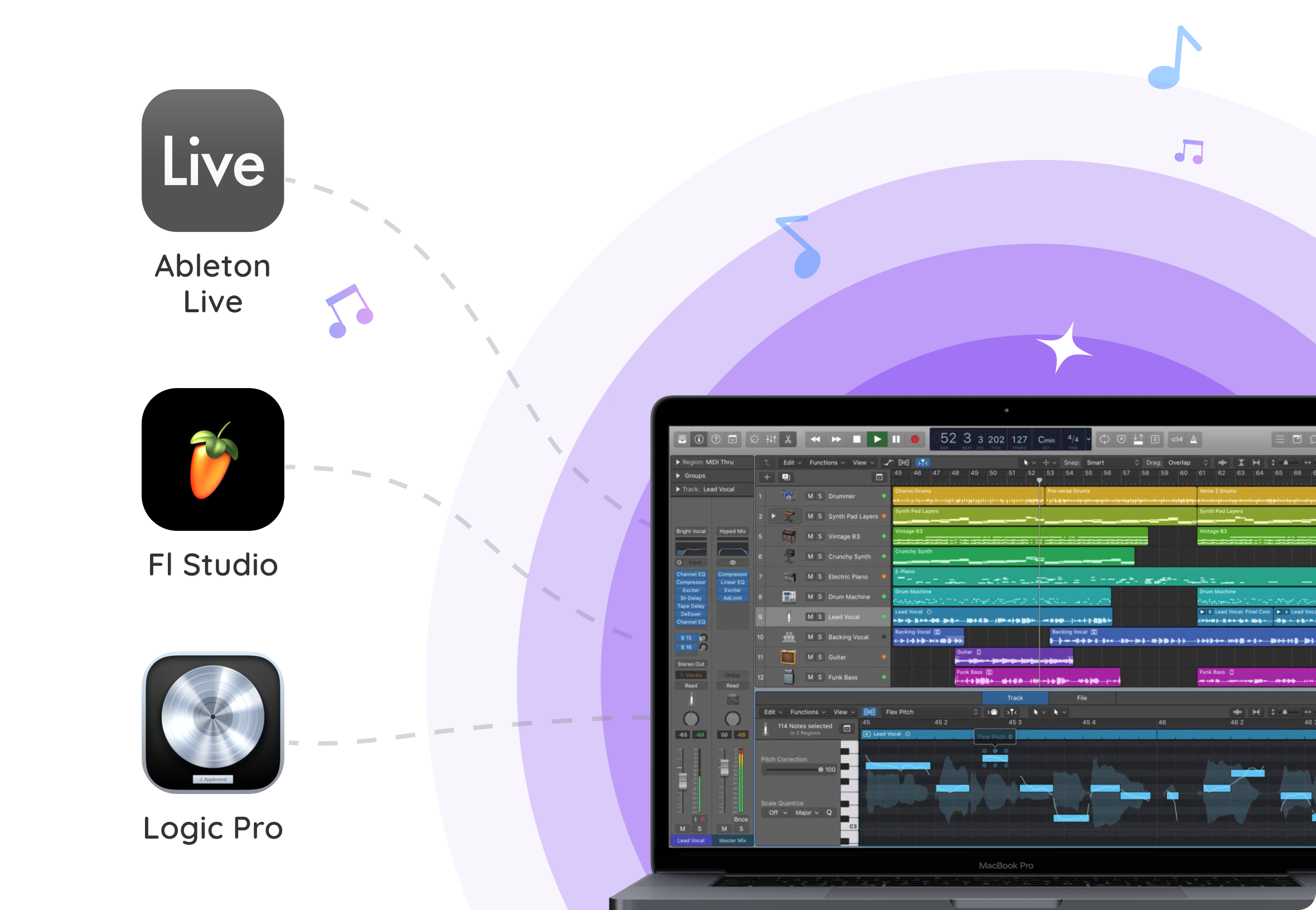
In addition to these desktop software options, there are also a variety of smartphone apps that can be used for recording: Garage Band, FL Studio Mobile, Abelton Note, BandLab, Voice Recorder.
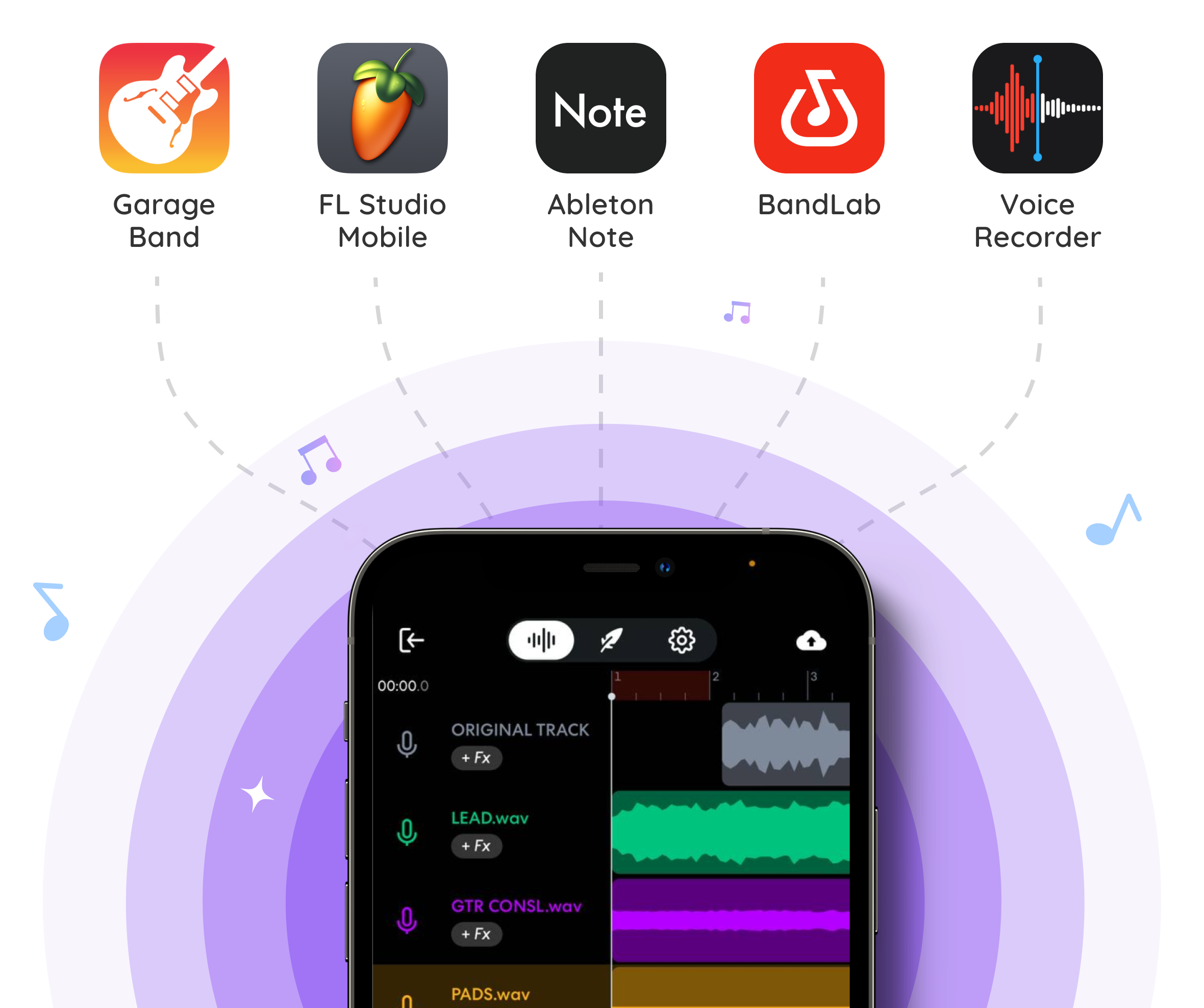
Choosing the perfect DAW or recording app boils down to your personal workflow preferences. Find one that lets you effortlessly unleash your musical genius!
Don't forget to spice things up with online tools like ChordChord Generator, a secret sauce for crafting catchy chord progressions. Embrace technology and make your music-making journey a thrilling adventure!
Audio Interface
An audio interface is a crucial piece of equipment for any home recording setup. It converts analog signals from microphones and instruments into digital signals that can be processed by your computer, and vice versa. This allows you to capture your musical ideas with minimal latency and maximum quality.
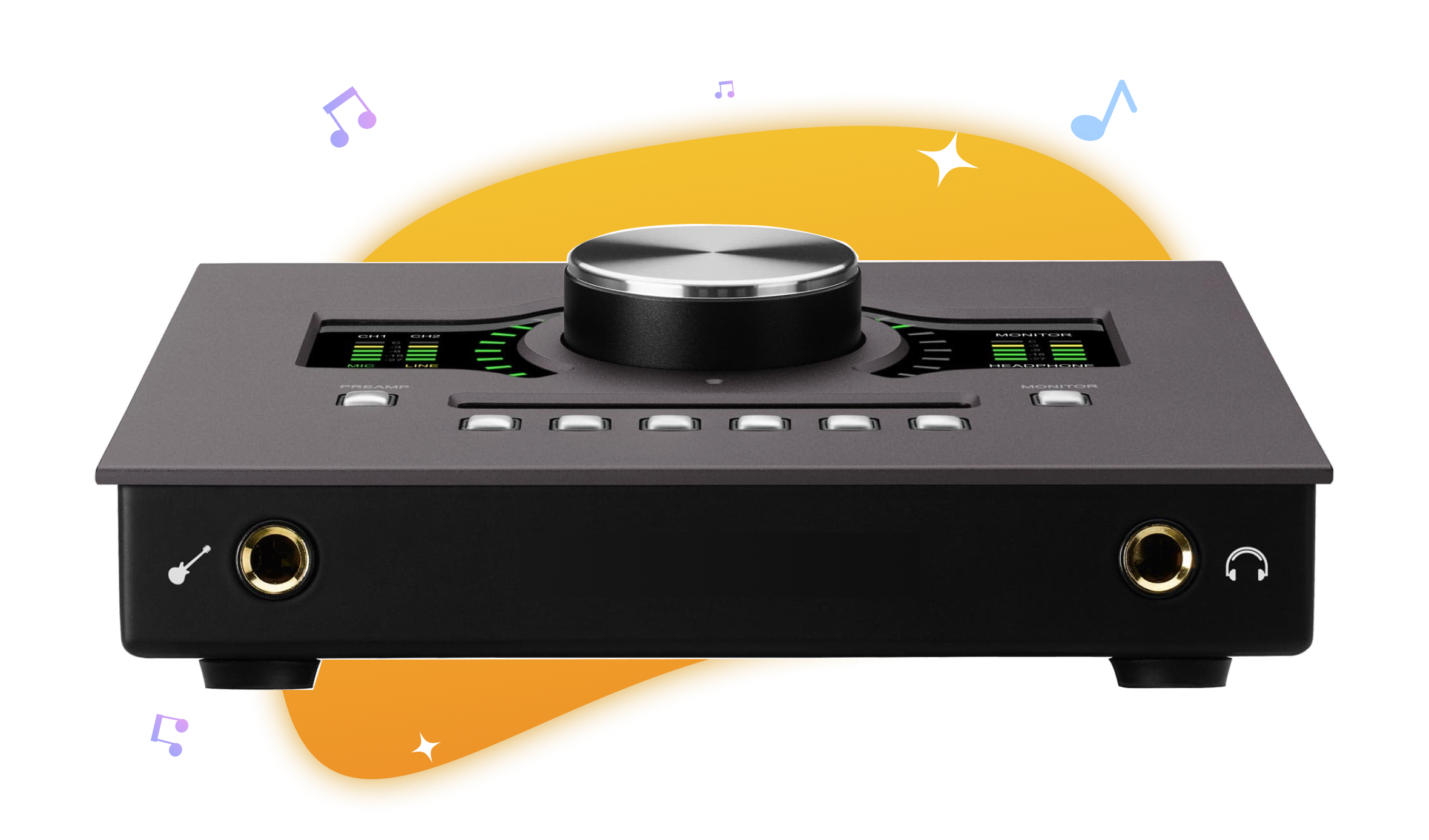
While having an audio interface is highly recommended for serious music production, it's not strictly necessary for beginners.
You can still get started with your laptop or smartphone and use a USB microphone and MIDI controller to record your ideas. However, keep in mind that using an audio interface will give you higher quality recordings and more flexibility when it comes to choosing microphones and other hardware.
MIDI Controllers
Same as with the audio interface, having a MIDI controller can definitely enhance your home recording setup, but it's not essential if you're just getting started.
However, if you're looking for a more tactile way to play and program virtual instruments, a MIDI controller can be a game changer. With keys and drum pads, you can easily create melodies, chords, and rhythms that would be difficult to achieve with just a mouse and keyboard.
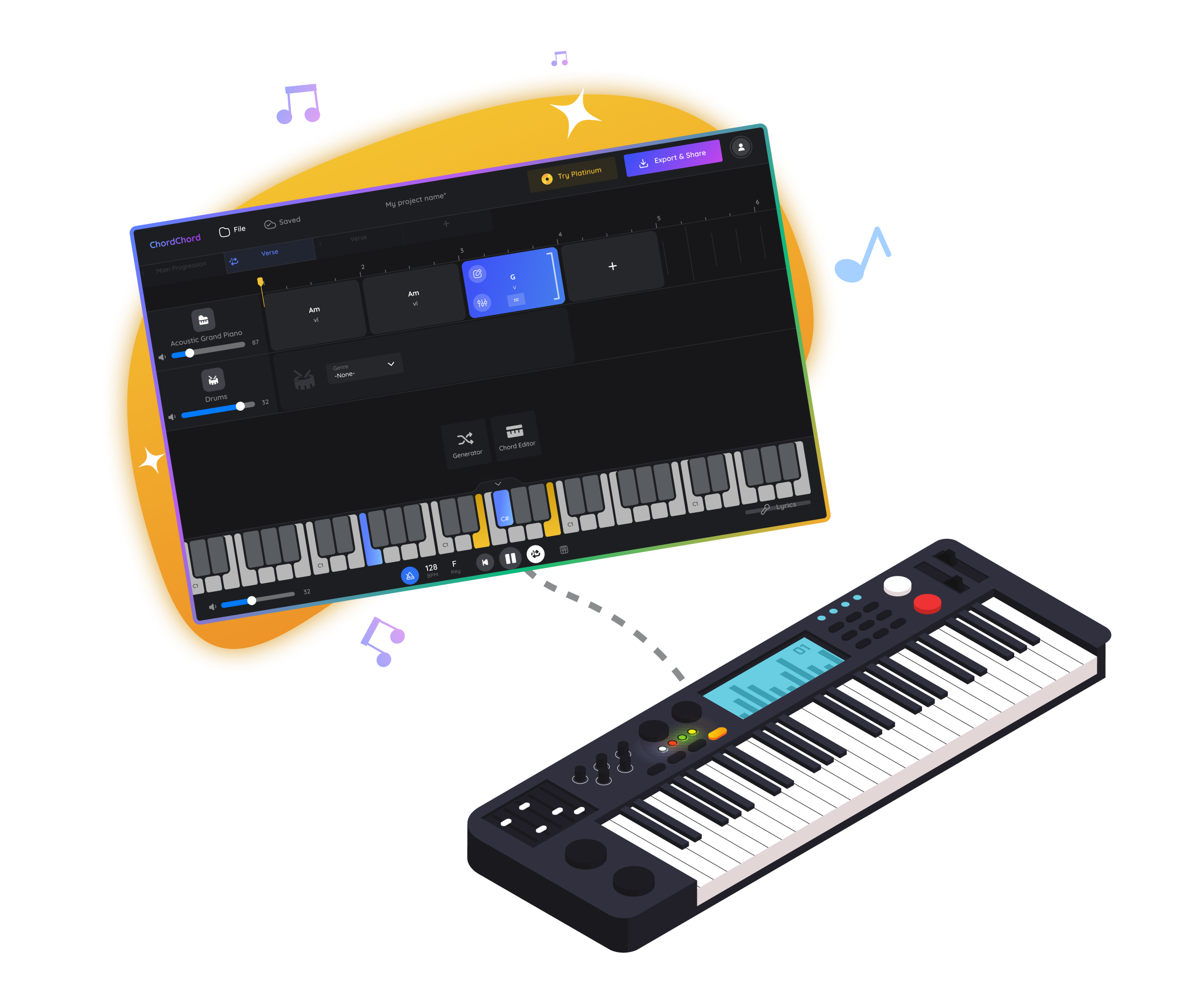
Plus, MIDI controllers offer a level of expressiveness and nuance that can be hard to achieve with software alone.
If you're a pianist wanting a realistic keyboard experience and a drummer wanting a more natural flow, a MIDI controller can help you turn your creative visions into reality.
Ultimately, whether or not you decide to invest in a MIDI controller depends on your personal preferences and needs as a music creator.
Monitors and Headphones
If you're planning to use an audio interface, you'll want to consider getting a good pair of monitors or headphones to help you hear your recordings more accurately.
Monitors are speakers that are designed to provide a flat, uncolored sound, which can be helpful when you're mixing and mastering your music.
However, keep in mind that investing in expensive monitors won't necessarily make your music sound better if you're working in an untreated room or with a low-quality audio interface.
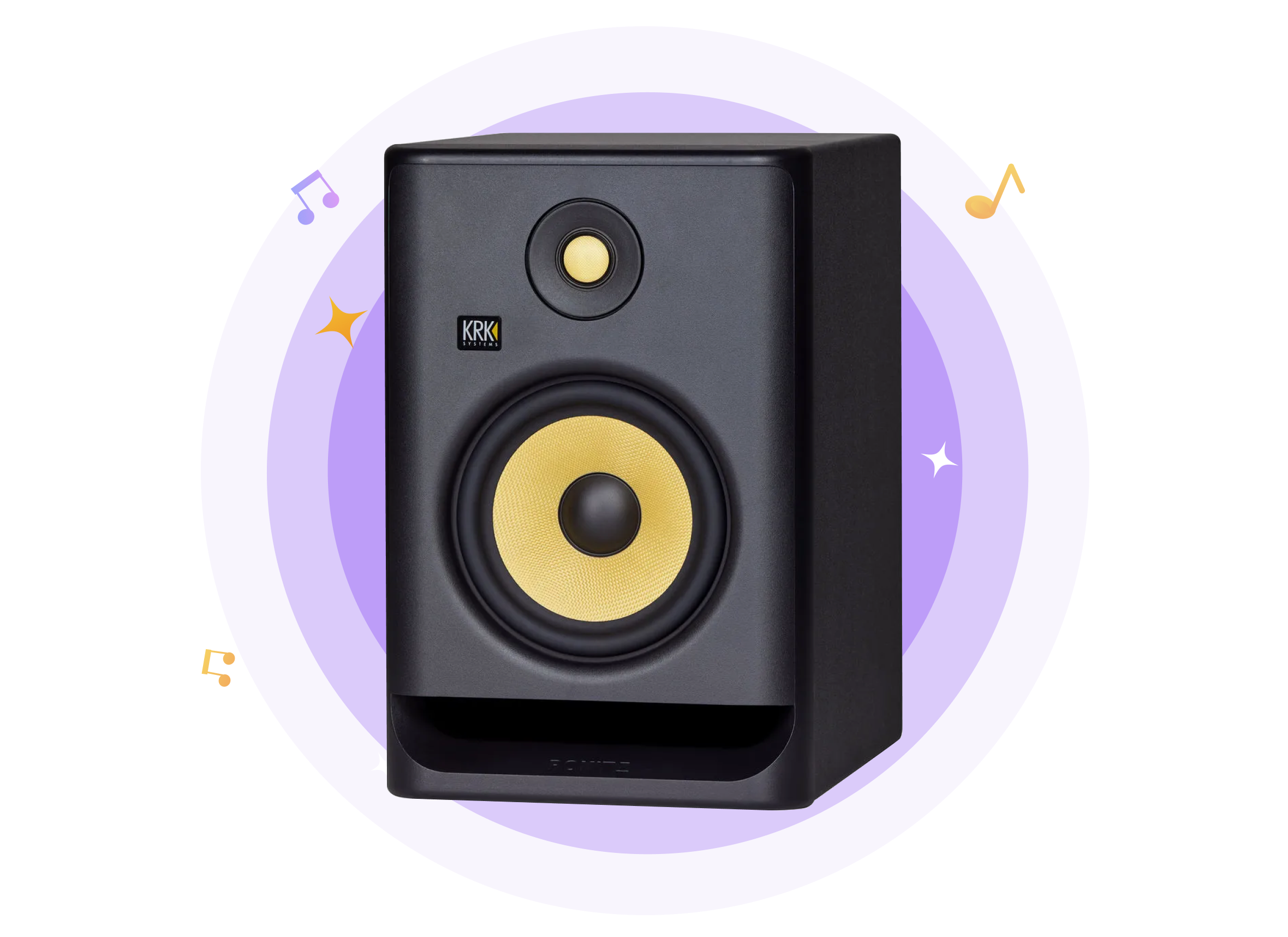
Headphones, on the other hand, are a great option for recording vocals or other instruments, as they can provide isolation from outside noise and won't be affected by the acoustics of your room. They can also be useful for mixing and editing, providing a different perspective on your audio than monitors.

Microphone
If your laptop is the heart of your home studio, then the microphone is the vocal cords that bring your ideas to life. It's the essential tool for capturing the sound of your voice, instruments, and environment, and shaping it into something that can be shared with the world.
There are countless types of microphones out there, ranging from budget-friendly USB models to high-end condenser and dynamic mics. But don't be fooled by the price tag – just because a mic costs more doesn't necessarily mean it's better suited to your needs.
At the early stages of your songwriting journey, we suggest opting for a budget-friendly mic. A USB microphone can be a great option, providing decent quality without requiring an audio interface to connect to your laptop.
And don't overlook the microphone on your smartphone, either. Many modern smartphones offer outstanding voice recording quality, making it possible to capture your ideas on-the-go without sacrificing sound quality.
Remember: the microphone is your primary tool for capturing your musical ideas and bringing them to life. So choose wisely, experiment, and have fun with it!

Summary
Creating your own home studio can be a challenging but rewarding experience. With the right equipment and tools, you can turn your ideas into fully realized songs and unleash your creativity in new and exciting ways.
So, take some time to research the options and invest in the equipment that works best for you. But remember that you don't need to spend a fortune on expensive equipment to get started. You can find budget-friendly options for most of the items we've covered, and as you gain experience and knowledge, you can always upgrade your equipment to suit your needs.
Free Song Structure Template Generator



